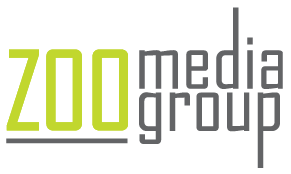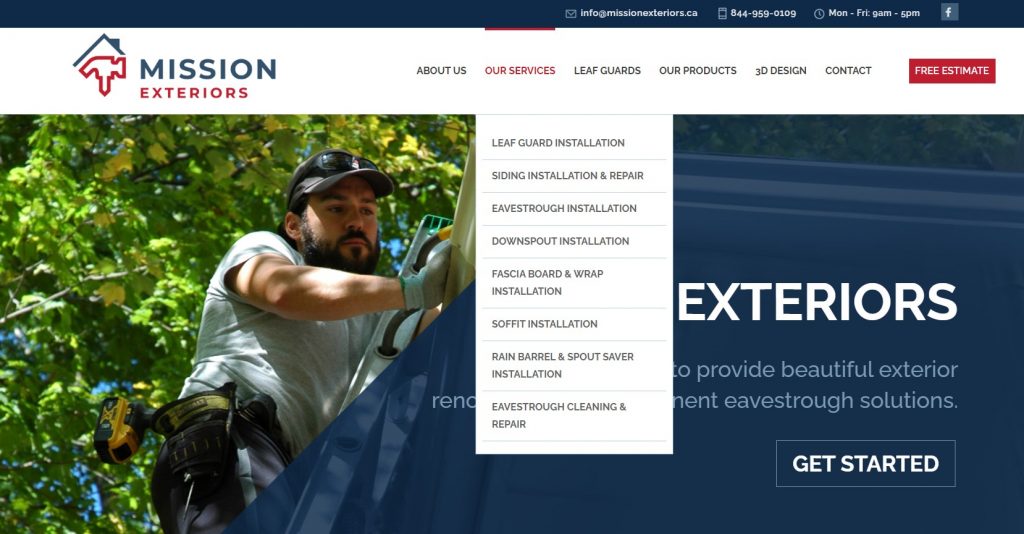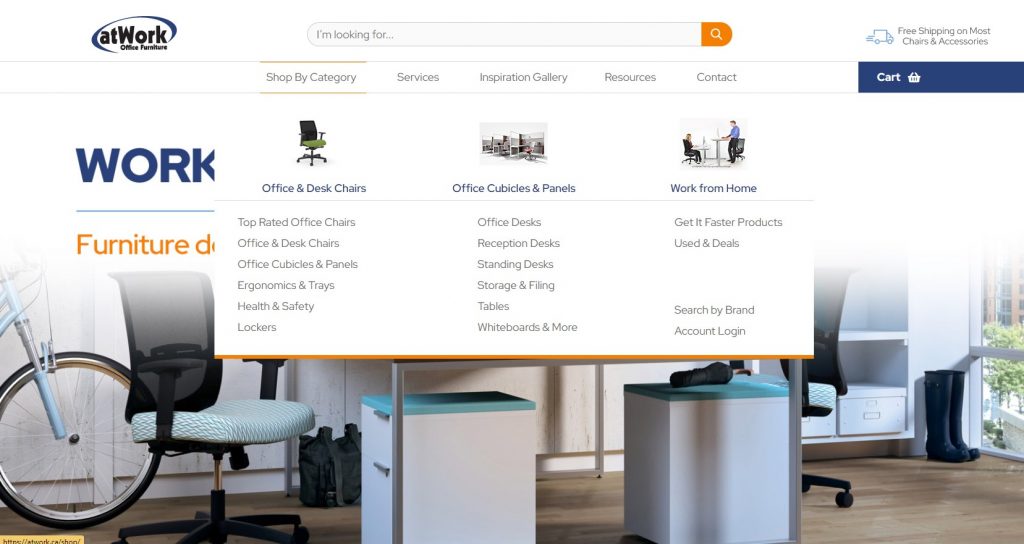What’s the Best? Single-Page vs. Multi-Page Websites
Single-page websites have been trending in recent years specifically for companies that target specific niches or sell a single product. However, we have also been getting a lot of calls from very frustrated business owners that for some reason or another launched a one-page website and are struggling to get leads. The website agency or freelancer they hired may not have provided them with the pros and cons of a single page website versus a multi-page website. That individual may have hired the agency because the website development cost was inexpensive without realizing that they would have to invest a lot of money to get anyone to find their simple one-page website on search engines.
What is a Single-Page Website?
A single-page website is a site that is just one page broken down into different sections of information as you scroll down the page. It may have a menu bar, but if you click on a certain section, it just scrolls down to that information rather than opening a new page. For example, it could have navigation titles at the top such as About, Services and Contact, but all the information is listed on that one page. Therefore, the content contained on a one-page website is condensed and quite basic.
Single-page websites are designed to be fluid, interactive, and can be visually stimulating and be downright engaging. Designed to showcase a brand in a unique and creative manner, scrolling single-page websites stand out in an industry dominated by standard navigation and structure. But be careful – just because something looks beautiful, doesn’t necessarily mean that it’s built to be functional or search engine friendly.
One-Page Website Examples
Here are a few examples of one-page websites:
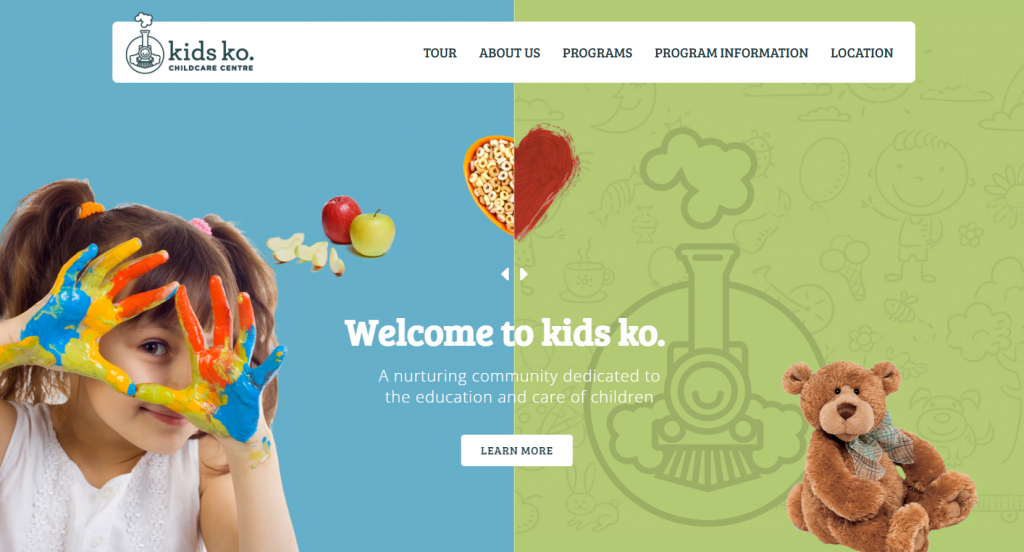
Kids Ko Childcare Centre
What is a Multi-Page Website?
Considered the standard design for most websites, a multi-page website are content rich sites with multiple pages with subpages in a menu. The only way to navigate a multi-page website is via internal links and clicking on links in the navigation menu. These types of websites are versatile, scalable, and flexible for any company or brand. From informational websites to ecommerce online stores, multi-page websites are the best option for building a strong online presence and can be highly optimized.
Multi-page Website Examples
Check out these 3 examples of multi-page websites and note their dropdown menus where you can see the various amount of web pages each site has:
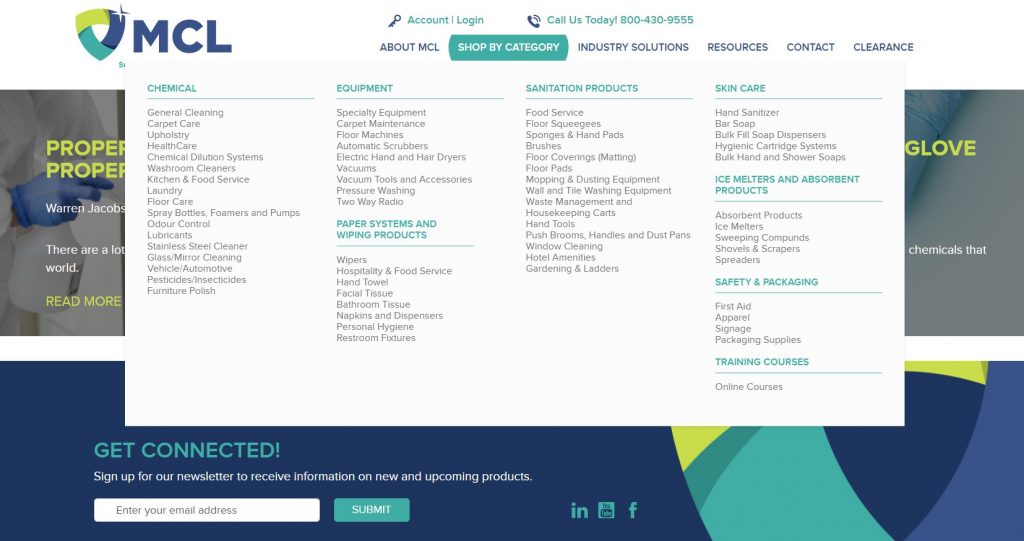
MCL Ecommerce Website Design and Development
The Pros and Cons of a Single-Page Website
One-page websites are great promotional vehicles, but if your goal is to build a well-optimized website for the long-term, a single-page scrolling site might not be your best option. Here are the pros and cons:
Starting with The Pros
1. Information Flow
As mentioned previously, one page websites can be highly interactive and look amazing and they can also easily present information the way you want it to flow so you are controlling the site visitor’s behaviour.
2. Better Mobile User Experience
A professionally designed single-page website will have a better mobile experience. You just scroll…no need for a navigation menu bar or dropdown menu. All the information is shown in sections with call to actions, as you scroll to the bottom of the website.
3. Website Loading Time is Faster
A one-page website will generally load faster than multi-page sites since there is less material to load. While a faster website may help with the user experience, limiting the amount of information to the visitor could also restrict your ability to communicate with them effectively.
4. Easier to Build and Maintain
A single page website design and build might only take a couple of weeks or less to design and will require very little updates or maintenance.
5. Easily Targets a Specific Audience
If you have a very targeted niche audience, then a single-page website is a great option. All the information that would appeal to this user can be presented to them on that one page.
The Cons of Single-Page Websites
1. One-Page is the Loneliest Number when it come to SEO
There are many reasons why most websites are multi-page designs. The biggest motivating factor is search engine optimization (SEO). When you have a multi-page website, you can create a single page of content tailored to a very specific topic. Since search engines index and rank individual web pages, this enables you to provide unique landing pages for very narrow topics. When you put more than one topic onto a page, as is the case with a single-page website design, you dilute that page’s value for each individual topic.
Single page websites are not able to rank for a wide variety of keywords which will likely affect its ability to get ranked organically on search engines.
2. No Internal Links
Additionally, internal links are extremely valuable search engine optimization tools. While you can link to various areas on a one-page website using internal anchors, the value isn’t the same as linking to an independent page within your site. Google currently doesn’t show internal anchors as separate results in their SERP (they aren’t considered separate pages, simply different areas of a single page). As such, your website will only be indexed as having a single page of content.
3. Accessibility
Scrolling single page websites tend to put creativity before accessibility. In most cases, a one-page website design isn’t useful for all users since they’re forced to scroll through content, they may not be interested in to find the information that they’re looking for.
4. Content Lacks Depth
Another con for single page websites is that it’s impossible to add a lot of detail on a subject since all content needs to fit on one page. A multi-page website will have separate pages for each topic, so it allows you to add a lot of helpful information about that certain topic, product, or service offering. Web visitors looking to learn more might leave the site due to the lack of relevant content.
5. Less Website Conversions
When you have multiple landing web pages versus a single-page website, conversion is much higher for larger websites. According to HubSpot’s research having 30 to 40 web pages can generate 7 to 12 times more web leads! This indicates that designing a multiple page website is a way better option for most businesses.
6. Challenging to Keep Track of Analytics
When you only have a one-page website, its very difficult to keep track of website conversions or visitor behavior. There is no way of knowing which parts of that web page people enjoy.
7. Difficult to Establish Trust
Site visitors might think that business with a one-page website is untrustworthy since it can’t provide a full picture about the company’s full story. This lack of information about that business could drive users away.
8. Marketing is a Must so its More Expensive
Since single-page websites are not search engine friendly, the only way to drive traffic to the website will be through paid advertising. Search engine marketing, social media marketing, and traditional marketing will all be required to effectively promote the website.
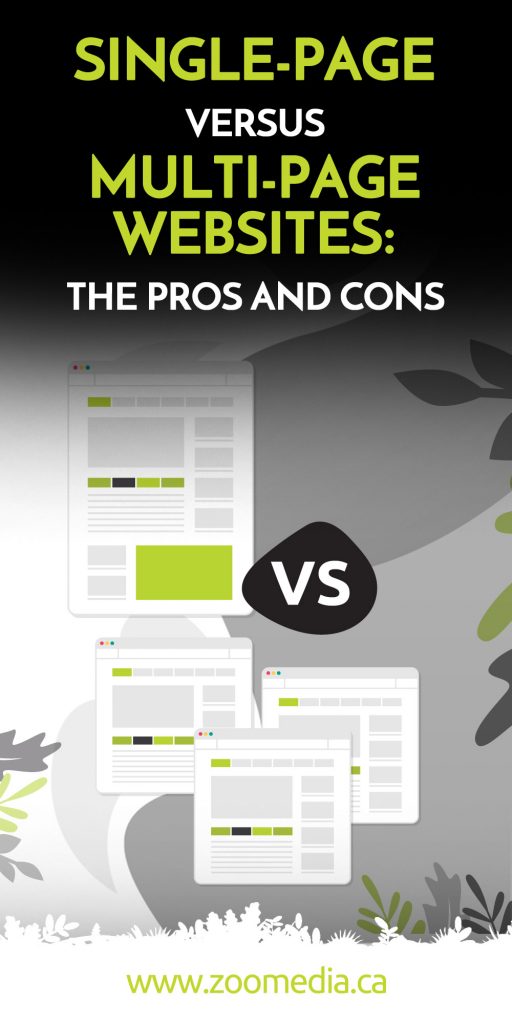
When and How to Use a One-Page Website
One-page websites might not be the best option for a multi-faceted, content heavy website; however, that doesn’t mean you should remove this creative option from your marketing toolbox entirely.
When To Use a One-Page Website
Single-page scrolling websites are great promotional vehicles for highly targeted projects, such as pay-per-click campaigns, contests, or product launches. Better yet consider adding a single scrolling promotional landing page to your multi-page website if you want to promote a certain product/service offering to a specific market rather than build a single-page website and have it stand on its own. This strategy when done well, is very effective.
How To Properly Setup a One-page Website
Proper keyword research and placement, when coupled with an intuitive user flow and strategically placed conversion points can help.
Here’s what you need to remember:
Get Your Keywords and Keyword Phrases Right
Keywords are the foundation of any SEO strategy. Work with a search engine optimization consultant or try using the different free online tools to determine what keywords and key phrases are relevant to your industry and your company. Once you’ve produced a solid list, make sure you insert these phrases into your meta title, meta description and throughout your page content.
Unlike a traditional website, where you have the luxury of optimizing multiple pages, here you’ll only have one page to work with, so be smart! The trick is to produce highly targeted keyword repetitions throughout your one page without getting spammy.
Remember to optimize your images with proper ALT tags and don’t forget to include good link title tags. This will help ensure that your one-page website will be crawled and indexed with your relevant keywords.
Keep Your Content Crisp
The best one-page websites are highly targeted. As such, the written content on the page is normally minimal, crisp, and clear. This will enable you to organize your thoughts and swiftly direct users to obvious conversion points.
Promotion is Key
Since getting organically ranked is highly unlikely, you will need to find specific vehicles to promote your one-page website. There are a variety of online marketing tactics that the web page could use including search engine marketing like Google AdWords, remarketing and display advertising. Social media, influencer, viral and traditional marketing are other options. The marketing tactics you select will depend on the audience you are targeting.
Conclusion
Whether you go with a single-page or multi-page website build, the choice should depend on your business goals and who you are targeting. A single-page website is not search engine friendly in comparison to a multi-page site. Well designed scrolling single-page websites or web applications are still great promotional tools for the right, highly targeted projects, especially when they are part of a coordinated digital marketing campaign. Contact ZOO Media Group, London, Ontario’s top web design and development agency today to learn more about this engaging online tool.
